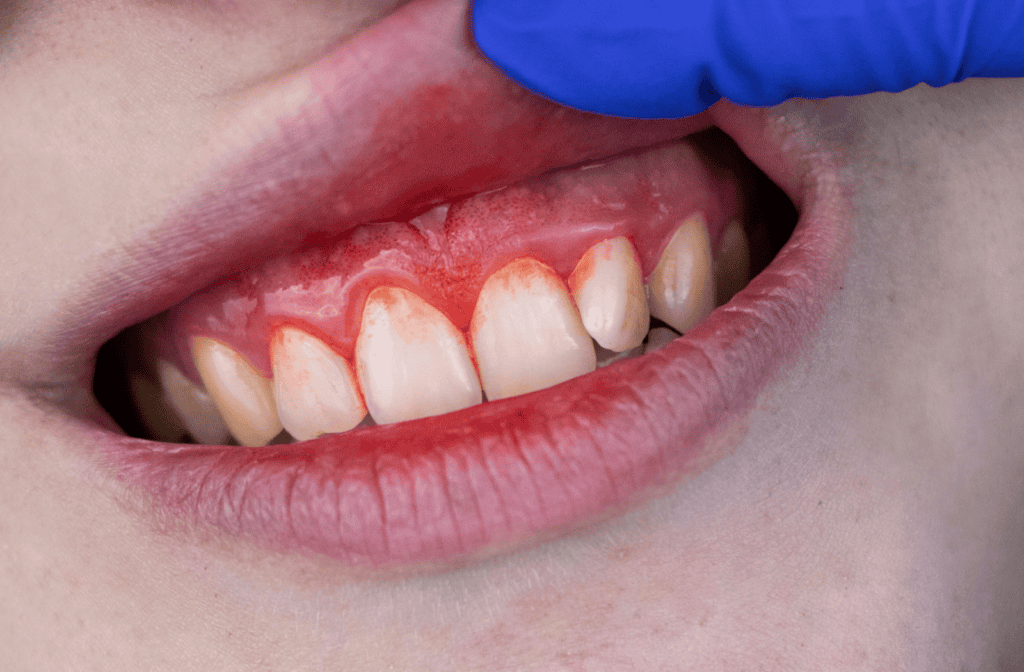What Happens If You Don’t Floss?
Do you really need to floss if you brush your teeth twice a day?
It’s a question many people ask, and it’s easy to understand why. Brushing your teeth feels like the foundation of a good oral hygiene routine, so flossing can sometimes seem like an optional extra. However, flossing is vital in maintaining oral health and preventing serious dental problems. Skipping flossing can lead to a range of issues, from cavities to bad breath to gum disease, that brushing alone cannot prevent.
Why Flossing Matters
Flossing plays a crucial role in your oral hygiene routine. While brushing removes plaque and food particles from the surface of your teeth, it can’t clean the tight spaces between them or below the gumline.
Flossing removes food debris and plaque from these areas, preventing them from hardening into tartar—something brushing alone can’t tackle. Without flossing, plaque can build up, leading to tooth decay, gum irritation, and more serious oral health issues. Flossing helps keep your gums healthy and your teeth free from cavities in places your toothbrush can’t reach.
Immediate Effects of Not Flossing
- Bad Breath (Halitosis): If you skip flossing, food particles get stuck between your teeth and decay, leading to bad breath. These food bits are the perfect breeding ground for bacteria, which produce odours that can linger no matter how much you brush.
- Plaque Buildup: Plaque begins to form on your teeth just hours after eating. If it isn’t removed by flossing, it hardens into tartar. Tartar can only be removed by a dental professional. If left unchecked, tartar can lead to cavities and gum disease.
Long-Term Consequences of Skipping Flossing

Gum Disease (Gingivitis & Periodontitis)
When plaque isn’t removed, it irritates the gums, causing inflammation and bleeding—a condition known as gingivitis. If untreated, gingivitis can develop into periodontitis, which causes gum recession, bone loss, and even tooth loss. This can be painful and costly to treat.
Cavities Between Teeth
The bacteria in plaque produce acids that erode the enamel of your teeth. These acids are especially dangerous in areas that are difficult to reach with a toothbrush, such as the spaces between your teeth. Over time, cavities can form, leading to decay and the need for dental work.
Increased Risk of Systemic Health Issues
Did you know that oral health affects your overall health?
Research has shown links between gum disease and conditions such as heart disease and diabetes. Inflammation in the mouth can spread throughout the body, increasing your risk for these chronic conditions.
How Often Should You Floss?
Dental professionals recommend flossing once a day. While it’s understandable that time or discomfort might make flossing feel like a chore, it becomes easier with practice. Just a few minutes each day can significantly impact your oral health, so it’s worth making the commitment.
Tips for Effective Flossing
Here’s how to floss properly:
- Cut about 18 inches of floss and wrap it around your fingers, leaving a few inches in between to work with.
- Gently slide the floss between your teeth, curving it around each tooth and moving it below the gumline.
- Avoid snapping the floss, as this can hurt your gums. Instead, use a gentle up-and-down motion to clean effectively.
If traditional floss is uncomfortable, alternative methods, such as floss picks, water flossers, or interdental brushes, can make the process easier and more effective.
Common Myths About Flossing
Many people are unsure about flossing due to common myths:
“If my gums bleed, I shouldn’t floss.”
Bleeding gums often indicate that you need to be flossing more consistently. The good news is that regular flossing will help reduce inflammation and bleeding over time.
“Flossing isn’t necessary if I brush thoroughly.”
Brushing removes plaque from the surfaces of your teeth, but it can’t reach the tight spaces between them. Flossing is essential to remove debris and prevent plaque buildup in these hard-to-reach areas.
A Healthier Smile With Regular Flossing
Flossing regularly leads to fresher breath, healthier gums, and fewer cavities. It also reduces the risk of systemic health issues, making it an important habit for overall well-being. Incorporating flossing into your daily routine is a small but impactful way to protect your smile and improve your oral health.
Flossing is an essential step in your oral hygiene routine that should be noticed. By flossing daily, you can help prevent bad breath, gum disease, cavities, and more serious health issues. Remember, your smile deserves the best care, and flossing is one of the simplest ways to protect it.
Visit South Ancaster Family Dental & Love Your Smile
South Ancaster Family Dental is committed to providing personalized care and preventative dentistry to help you maintain a healthy, vibrant smile. If you have questions about your oral health or need tips on flossing, our team is here to help. Contact us today to schedule a check-up and keep your smile healthy for years to come.

